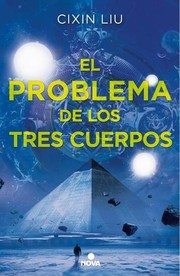Jonathan Hartley reviewed The Three-Body Problem by Cixin Liu (Three-Body Trilogy, #1)
Not just bizarrely nihilistic and cynical, but also pro-authoritarian propaganda
1 star
Content warning This book is intensely political.
Everyone loves this, but I can't understand why nobody seems to be put off, or at least puzzled, but the way that every human individual or organization in the book is just relentlessly awful, ranging from suicidal to genocidal, and everything in-between, without respite.
Most of them, given any chance at all, are trying hard to selfishly save their own skins, with not a moment's regard for the fact that their plans will immediately doom the rest of the human race. Those not intent on self preservation at any cost are instead committed to bitter nihilism, such as the ultimate eco-terrorists, who feel that to save the Earth's biosphere they must collaborate with alien forces to bring about humanity's defeat, and likely annihilation.
These characters and groups are not depicted as outliers. They represent the human race in its entirety. The only thing that holds back this tide of destructive behavior is the government, who keeps everyone in line.
I can't tell how much of this bizarrely one-sided depiction of humanity is a deliberate choice by the author, versus simply being an unplanned exposure of their worldview, shaped as it is by their native Chinese immersion in authoritarianism. Does that form a subconscious backdrop to everything they wrote here, or are they consciously making a deliberate point that strong government is absolutely necessary?
The author Liu Cixin has since gone on record in support of the Chinese government's internment of Muslim Uighurs in Xinjiang. There, people have been rounded up, because of their ethnicity, into over 400 internment camps. The camps administer cultural and religious re-education, forced labor, involuntary sterilization and abortion. This is something Liu Cixin is openly in favor of.
It makes my skin crawl to read that, and then carry on blithely with this story book of theirs, which seems to be an unapologetic justification for an authoritarian government's impositions on its populate. I did finish it, but have no desire to read the sequels - and not just because I don't agree with the politics. I genuinely found the behavior of all the characters to be intrusively bewildering, demented and incessantly frustrating.




